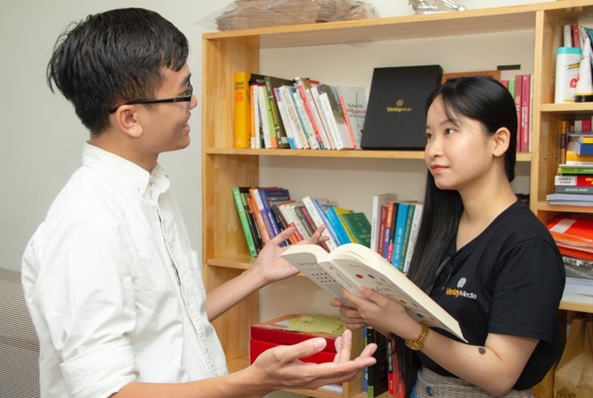5 Ways to Build Strong Teacher-Student Relationships with Teens

URL: https://unsplash.com/photos/OfbyslkgjNg
The teacher-student relationship is an essential component of learning. A good relationship gives teachers the atmosphere they need to deliver instructions to learners effectively, while it allows students to see a teacher as someone they trust and don't want to let down. However, the trust between an educator and a learner does not always exist. In many cases, a teacher must strive to build trust and establish a healthy relationship, especially when dealing with teens. Below are 5 ways you can follow to build a strong teacher-student bond.
Know Their Interests
Teens have a different way of looking at the world. They are learning to become adults as many hormones are raging through their bodies. As such, relating with them can be a handful. However, you may connect with teens by understanding their interests or learning about their favorite activities. As an educator, having this information can help you create a relationship by including and referencing things that excite them. Some topics that teens find interesting include:
1. Video games
2.TV shows and movies
3.Social media trends and gossip
4. Sports.
In addition, everyone has a different crop of students. Thus, it will benefit you to know what your learners want before using subjects that do not interest them. It is also important to be patient and ready to help. Students get many assignments and term papers during any session. Sometimes they receive work they are not familiar with. As a teacher, you should be willing to consult students regarding their homework and other matters and give advice.
- 1-on-1 Interaction
You may get along with the majority of students in a class. Yet, there may be a few that seem distant and detached. In this situation, connecting with these kids can be a challenge. Therefore, the best way is to have periodic 1-on-1s with them. You can do this after class or during recess.
When you talk to the student, try to find out about them. Ask the student about their family and if everything is ok at home. Give them room to speak and do not pass judgment on whatever they say. After each interaction, a learner may become more comfortable sharing. In turn, you will have the information you need to help them in and outside the classroom.
- Share Personal Stories
Students are suckers for stories. They love to hear tales about their teachers' past, especially when the educators were younger. Thus, you can use your stories as a learning tool while delivering lessons. Doing this makes you human and reminds learners, especially teens you were once their age. In addition, learners become more receptive to you when they understand you have undergone the type of things they are experiencing.
Another good way of sharing information about your past is to read an essay from your days in school to your students. You may then ask learners to create articles based on the same general topic. When you do this, you can get the best output from teens while improving their writing skills. Also, it helps you build a stronger relationship with all your students.
- Attend School Events
As a teacher, you should not limit your presence to the classroom. You will want to be present at as many school events as your schedule can accommodate. Doing this shows students that you care. Likewise, attending sports competitions and other events shows them you know how to have fun. Students seeing you living a normal life beyond teaching will make them more receptive to you.
- Be Humorous and Friendly
Humor has a way of breaking the ice no matter the circumstance. Thus, you should use some humor when teaching in class. It relaxes students and encourages them to partake in-class activities. In addition, you should be friendly yet professional with all your students. A smile in and outside the class encourages teens to reach out to you if they need help.
Conclusion
The teacher-student relationship is essential for effective learning. Therefore, a teacher must develop and nurture this connection. You may use the 5 tips presented in this article to improve your relationship with your students.
Guest Blogger:
Joanne Elliot is a content developer for Pro Custom Writing and she has received several awards and is eager to share her insights. In addition, Joanne loves to play and listen to music.
Search Internet4Classrooms







